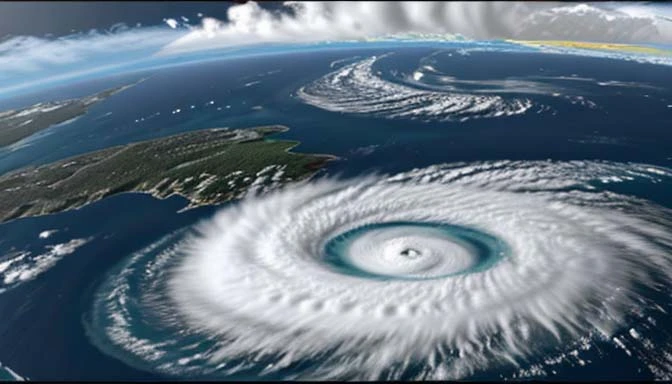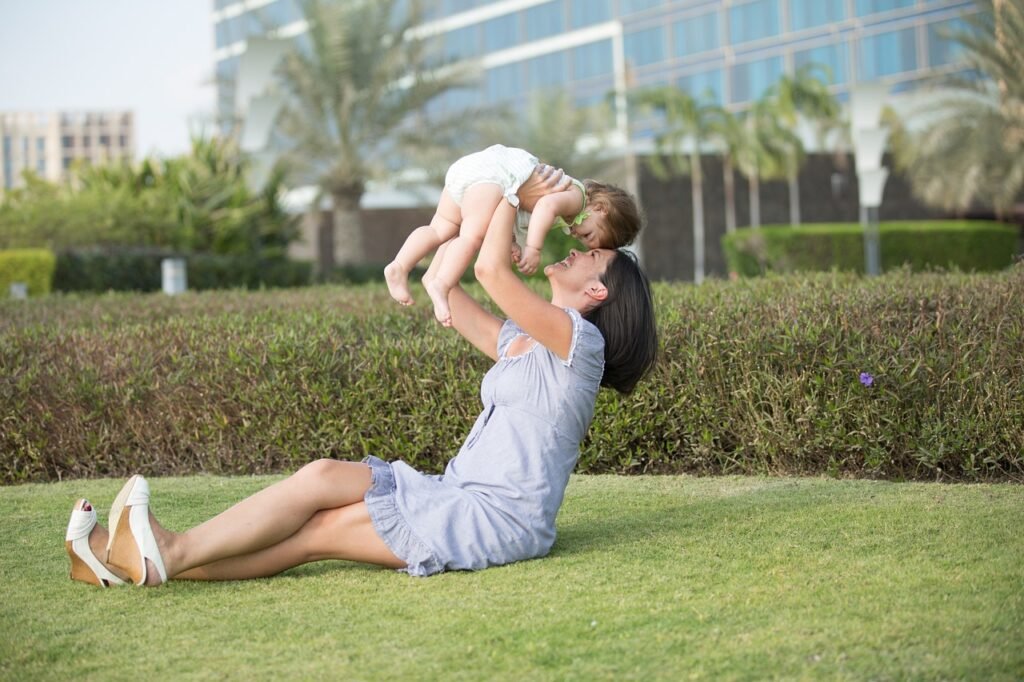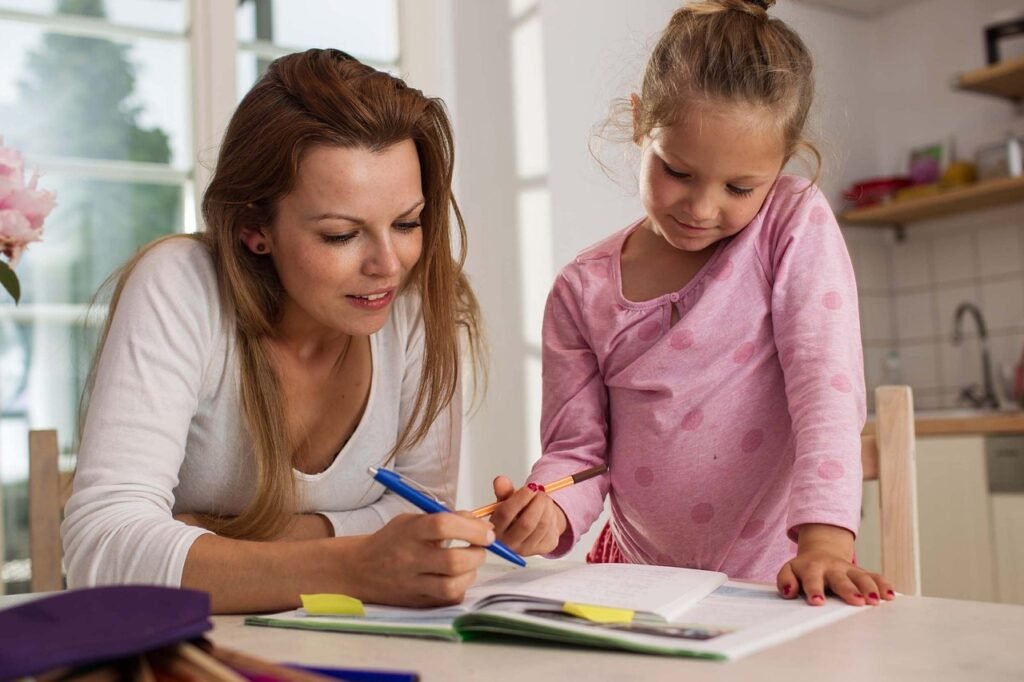Experiencing a natural disaster can be a traumatic and overwhelming event for both children and parents. The aftermath of such an event can leave families feeling scared, confused, and unsure of how to move forward. In this blog post, we will explore strategies and support for parents guiding their children through the aftermath of natural disasters, such as hurricanes, earthquakes, or wildfires.
When a natural disaster strikes, it is crucial for parents to prioritize their children’s emotional well-being. One of the most effective strategies is to provide a sense of safety and security. This can be achieved by reassuring children that their parents are there for them and will do everything possible to keep them safe. Creating a calm and stable environment is essential, even if the physical surroundings have been significantly impacted.
Another important strategy is to encourage open communication. Children may have many questions and concerns about what has happened and what will happen next. It is essential for parents to listen attentively and provide age-appropriate information. Being honest and transparent about the situation can help alleviate anxiety and confusion. Additionally, parents should encourage their children to express their emotions and validate their feelings. Natural disasters can evoke a wide range of emotions, including fear, sadness, anger, and even guilt. By creating a safe space for children to share their feelings, parents can help them process their emotions and begin the healing process.
Support from the community and professional resources can also play a crucial role in helping families recover from a natural disaster. Local organizations and support groups often offer counseling services, group therapy sessions, and workshops specifically designed to address the needs of families affected by natural disasters. These resources can provide parents with additional tools and strategies to support their children’s emotional well-being. Additionally, connecting with other families who have experienced similar events can create a sense of solidarity and reduce feelings of isolation.
It is important to remember that the recovery process after a natural disaster is not linear and may take time. Parents should be patient with themselves and their children as they navigate through the challenges and emotions that arise. Seeking professional help when needed is not a sign of weakness but rather a proactive step towards healing and rebuilding.
In conclusion, parenting through a natural disaster requires a combination of strategies and support. By prioritizing their children’s emotional well-being, encouraging open communication, and seeking community and professional resources, parents can guide their children through the aftermath of a natural disaster and help them find strength and resilience in the face of adversity.
Prioritize Safety and Security
The first step in parenting through a natural disaster is to prioritize the safety and security of your family. This includes ensuring that you have a plan in place for evacuation or sheltering in place, as well as having emergency supplies readily available. By taking these precautions, you can help alleviate some of the anxiety and fear that your children may be experiencing.
Here are some tips to help prioritize safety and security:
- Create an emergency plan and practice it with your family. This plan should include designated meeting points, emergency contact numbers, and escape routes. By practicing this plan regularly, you can ensure that everyone knows what to do in case of an emergency.
- Ensure that you have a well-stocked emergency kit with essential items such as food, water, medication, and first aid supplies. It is important to regularly check and update this kit to ensure that everything is in working order and not expired.
- Stay informed about the latest updates and warnings from local authorities. This can be done by signing up for emergency alerts or following local news channels. By staying informed, you can make informed decisions about when to evacuate or take shelter.
- Establish a safe meeting place in case you get separated from your children during the disaster. This could be a neighbor’s house, a community center, or a designated landmark. It is important to communicate this meeting place with your children and ensure that they know how to get there safely.
- Consider the specific needs of your family members. If you have young children or individuals with disabilities, you may need to make additional preparations. This could include packing extra supplies, such as diapers or medication, or making arrangements for transportation.
By prioritizing safety and security, you can help ensure the well-being of your family during a natural disaster. While it is impossible to predict when or where a disaster will strike, being prepared can make a significant difference in how you and your children cope with the situation.
Provide Reassurance and Emotional Support
During and after a natural disaster, children may experience a wide range of emotions, including fear, anxiety, sadness, and confusion. It is important for parents to provide reassurance and emotional support during this time.
Here are some ways you can provide emotional support to your children:
- Listen to their concerns and validate their feelings.
- Offer comfort and reassurance that they are safe.
- Encourage them to express their emotions through talking, drawing, or writing.
- Limit exposure to news or images that may be distressing.
- Create a safe and calm environment for them to process their emotions.
- Engage in activities that promote relaxation and stress relief, such as deep breathing exercises, meditation, or yoga.
- Establish a routine to provide a sense of stability and predictability in their lives.
- Encourage them to engage in hobbies or activities that they enjoy, as this can help distract them from their worries.
- Provide opportunities for them to connect with friends and loved ones, either in person or through virtual means, to maintain social support.
- Seek professional help if necessary. If your child’s emotional distress persists or worsens, it may be beneficial to consult with a mental health professional who specializes in working with children.
Remember, every child reacts differently to natural disasters, and it is important to be patient and understanding with them. By providing reassurance and emotional support, you can help your children navigate through their emotions and promote their overall well-being in the aftermath of a natural disaster.
Maintain Routines and Structure
After a natural disaster, it is common for routines to be disrupted. This can contribute to feelings of instability and insecurity for children. Maintaining a sense of normalcy and routine can help provide a sense of stability and security.
Here are some tips for maintaining routines and structure:
- Stick to regular mealtimes and bedtimes as much as possible. Consistency in eating and sleeping patterns can help regulate children’s biological clocks and promote better overall health.
- Create a daily schedule that includes time for schoolwork, play, and relaxation. This can help children feel a sense of structure and predictability in their day, which can be comforting during uncertain times.
- Engage in familiar activities and hobbies that your children enjoy. Whether it’s playing a musical instrument, painting, or playing a sport, engaging in activities that bring joy and a sense of familiarity can help children feel grounded and connected to their normal lives.
- Encourage physical activity and exercise, which can help reduce stress and anxiety. Engaging in regular physical activity releases endorphins, which are natural mood boosters. This can help children cope with the emotional challenges that may arise after a natural disaster.
- Communicate openly and honestly with your children about the changes and challenges they may be facing. Encourage them to express their feelings and concerns, and provide reassurance that you are there to support and guide them through this difficult time.
By maintaining routines and structure, you can help create a sense of stability and normalcy for your children, even in the midst of a natural disaster. This can play a crucial role in their emotional well-being and resilience as they navigate through challenging times.
Encourage Open Communication
Open communication is crucial during the aftermath of a natural disaster. Encourage your children to ask questions and express their concerns. Be honest and age-appropriate in your responses, providing them with the information they need to understand the situation.
Here are some tips for encouraging open communication:
- Initiate conversations about the natural disaster and ask your children how they are feeling.
- Answer their questions truthfully and provide reassurance when needed.
- Use age-appropriate language and explanations.
- Let your children know that it is okay to feel scared or upset.
It is important to create a safe and non-judgmental environment for your children to express their thoughts and feelings. Encourage them to share their experiences, fears, and concerns without fear of criticism or judgment. Active listening plays a significant role in fostering open communication. Give your undivided attention to your children when they are speaking, maintain eye contact, and provide verbal and non-verbal cues to show that you are actively listening.
It is essential to validate your children’s emotions and experiences. Let them know that their feelings are valid and normal given the circumstances. Avoid dismissing or downplaying their emotions, as this can hinder open communication. Instead, empathize with them and acknowledge their emotions. For example, if your child expresses fear about the possibility of another natural disaster, you can say, “I understand that you are scared, and it’s normal to feel that way. We are doing everything we can to stay safe.”
Encouraging open communication also involves creating opportunities for your children to express themselves creatively. Art therapy, journaling, or storytelling can provide a safe outlet for them to process their emotions and experiences. Encourage them to draw, write, or tell stories about their thoughts and feelings related to the natural disaster. This can help them gain a sense of control and understanding over their emotions.
Be mindful of your own communication style and the messages you convey. Your children look up to you as a role model, so it is important to model open and honest communication. Avoid hiding information or sugarcoating the situation. Instead, be transparent and share updates with your children as they become available. This will help build trust and reinforce the importance of open communication in times of crisis.
Seek Support from Others
Parenting through a natural disaster can be challenging, and it is important to seek support from others. Reach out to friends, family, or support groups who can provide a listening ear and offer assistance when needed.
Here are some ways you can seek support:
- Join local community groups or online forums for parents who have experienced similar situations. These groups can be a valuable source of information and emotional support. You can share your experiences, ask questions, and learn from others who have gone through similar challenges. It can be reassuring to connect with people who understand what you are going through and can offer guidance and encouragement.
- Attend support groups or counseling sessions specifically designed for families affected by natural disasters. These groups are often facilitated by professionals who specialize in trauma and can provide a safe space for parents to share their concerns and feelings. They can also offer practical advice on how to navigate the challenges of parenting during and after a natural disaster.
- Reach out to your child’s school or pediatrician for additional resources and support. Schools and healthcare professionals are often well-equipped to provide assistance to families in times of crisis. They may be able to connect you with local resources, such as counseling services or community organizations that can provide further support. They can also offer guidance on how to talk to your child about the natural disaster and help them cope with any emotional or psychological distress they may be experiencing.
Remember, you don’t have to go through this alone. Seeking support from others can make a significant difference in your ability to navigate the challenges of parenting during and after a natural disaster. By reaching out and connecting with others who have experienced similar situations, you can find comfort, guidance, and practical advice to help you and your family through this difficult time.
Practice Self-Care
As a parent, it is important to prioritize your own well-being and practice self-care, especially during challenging times. Taking care of yourself will enable you to better support your children through the aftermath of a natural disaster.
Here are some self-care strategies for parents:
- Find time for relaxation and activities that bring you joy. Whether it’s reading a book, going for a walk in nature, or indulging in a hobby, make sure to carve out some time for yourself. It’s important to recharge and do things that make you happy.
- Take breaks when needed and ask for help when necessary. It’s okay to admit that you can’t do it all on your own. Reach out to family members, friends, or neighbors for support. Delegate tasks and responsibilities to lighten your load and give yourself some breathing room.
- Practice stress-reducing techniques such as deep breathing, meditation, or yoga. These activities can help calm your mind and relax your body. Find a quiet space where you can focus on your breath, clear your thoughts, and let go of any tension or worries.
- Seek professional help if you are struggling with your own mental health. It’s important to recognize when you need additional support. Reach out to a therapist or counselor who can provide guidance and help you navigate through any emotional challenges you may be facing.
Remember, taking care of yourself is not selfish, but rather a necessary part of being a parent. By practicing self-care, you are ensuring that you have the physical, emotional, and mental strength to be there for your children during difficult times.
Monitor and Address Changes in Behavior
Children may exhibit changes in behavior after experiencing a natural disaster. It is important for parents to monitor these changes and address them appropriately.
Here are some signs to watch out for:
- Difficulty sleeping or nightmares.
- Changes in appetite or eating habits.
- Withdrawal from activities or friends.
- Increased irritability or anger.
If you notice any concerning changes in your child’s behavior, consider seeking professional help or counseling. It is crucial to provide a safe and supportive environment for your child to express their emotions and fears. Encourage open communication and active listening to understand their concerns and validate their feelings. Reassure them that their reactions are normal and that you are there to support them.
On top of emotional support, maintaining a routine can also help children regain a sense of stability and control. Establishing consistent bedtimes, meal times, and engaging in regular activities can provide a sense of normalcy and structure.
It is important to remember that every child responds differently to traumatic events, and there is no one-size-fits-all approach. Some children may require more time and support to recover, while others may bounce back more quickly. Be patient and understanding, and seek professional help if needed.
Foster Resilience and Growth
While the aftermath of a natural disaster can be incredibly challenging, it also provides an opportunity for growth and resilience. As a parent, you can help foster resilience in your children by emphasizing their strengths and encouraging them to learn from the experience.
Here are some ways to foster resilience and growth:
- Highlight your child’s strengths and accomplishments.
- Encourage problem-solving and decision-making skills.
- Teach your children about the importance of helping others and giving back to the community.
- Remind them that they have overcome challenges before and have the ability to do so again.
- Provide a safe and supportive environment where they can express their feelings and emotions.
- Encourage open communication and active listening to understand their concerns and fears.
- Help them develop coping mechanisms such as deep breathing exercises or journaling to manage stress and anxiety.
- Involve them in the recovery process, allowing them to contribute ideas and take part in rebuilding efforts.
- Seek professional help if necessary, such as counseling or therapy, to address any lingering emotional or psychological effects.
Parenting through a natural disaster is undoubtedly challenging, but with the right strategies and support, you can guide your children through the aftermath and help them build resilience in the face of adversity. By fostering their growth and providing them with the necessary tools to navigate difficult situations, you are equipping them with lifelong skills that will serve them well in the future.
Helpful Resources
- American Red Cross – Coping with Disasters – The American Red Cross provides resources for parents and children on coping with disasters, including preparedness checklists, coping strategies, and educational materials. American Red Cross – Coping with Disasters
- Sesame Street in Communities – Sesame Street offers resources for families coping with emergencies and natural disasters, including videos, activities, and articles designed to help children understand and process their feelings. Sesame Street in Communities
- Child Mind Institute – The Child Mind Institute provides resources and articles for parents on supporting children during emergencies and disasters, including tips for talking to kids about scary news and helping them manage anxiety. Child Mind Institute
- Ready.gov – Helping Children Cope with Disasters – Ready.gov offers resources and guidance for parents on helping children cope with disasters, including age-appropriate tips, activities, and conversation starters. Ready.gov – Helping Children Cope with Disasters
- Psychology Today – Helping Kids Cope with Natural Disasters – Psychology Today offers articles and advice for parents on helping children cope with natural disasters, including tips for managing anxiety and promoting resilience. Psychology Today – Helping Kids Cope with Natural Disasters
- Author Kyle Pruett, M.D. ,is a Clinical Professor of Child Psychiatry at the Yale School of Medicine and Educational Advisory Board member for The Goddard School



